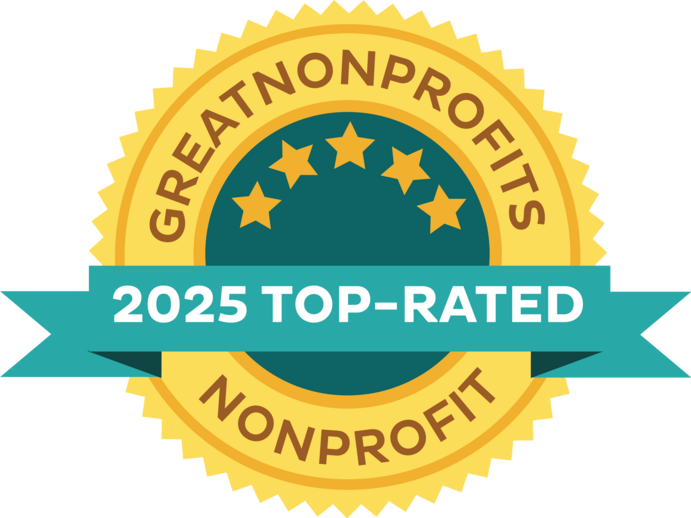Melanoma, a dangerous skin cancer, is very rare in children and teens. But it can happen to young people, as Kaili Arntson discovered when she was just 15 years old.
In 2019, Kaili enjoyed the life of an active 14-year-old. She competed on the varsity surf team and spent her days in school and her nights with friends and family in her southern California town. The thought of getting skin cancer never crossed her mind.
A Shocking Diagnosis
One summer day, Kaili’s mother, Ann, saw something new on Kaili’s skin.
“My mom caught notice of an unusual mole on my knee,” she explained. “We went to my pediatrician, who sent me to a dermatologist.”
In May 2020, at the age of 15, Kaili was diagnosed with stage IIIA melanoma.
Instantly, everything changed. Kaili and her family faced a frightening new reality of oncologists, treatment and scans.
“I couldn’t wrap my head around the fact that I had gotten melanoma,” Kaili said. “The doctors couldn’t give me a reason for my diagnosis.”
Each year in the U.S., only about 400 cases of melanoma are diagnosed in children under 20 years old. However, melanoma in teens between 15 and 19 years old accounts for 75 percent of these pediatric cases.
Her shocking diagnosis was intensified by the onset of the COVID-19 pandemic. But Kaili was determined to fight. And during her battle, Kaili discovered just how strong she was.
Treatment and Isolation
In June 2020, Kaili had surgery to remove the melanoma. Her surgeon also removed nearby lymph nodes to determine whether the cancer had spread. Fortunately, Kaili’s melanoma had not spread beyond the local lymph nodes.
She faced a longer, more difficult recovery than expected, due to complications that arose from her surgery.
“I needed to be immobilized,” Kaili explained. “For months, I rested on the couch, isolating from friends and family. Most of my town was shut down. My life had become a routine of doctor appointments and online learning.”
Melanoma can be an overwhelming journey for a person of any age. For Kaili, the fear of her cancer returning, combined with the isolation of the pandemic took a toll on her mental health. She fell into a depression.
“I was tired of living the same day over and over again, and had trouble managing my emotions,” she explained. “Eventually, I stopped taking care of myself. My motivation faded away.”
Finding Her Strength
Kaili found it difficult to ask for help. “Growing up, I was taught to do things on my own, because one day, I won’t have my parents around,” Kaili said. “When I struggled, I pressured myself to figure it out. I thought it would be rewarding to overcome my depression alone.”
She learned that it was not easy to cope. “Because there wasn’t much to do, I resorted to falling down the social media rabbit hole,” she said. “This didn’t help at all. In fact, it fueled my depression.”
At her parents’ urging, Kaili eventually began seeing a therapist and discovered that the tendency to “go it alone” was not uncommon in people her age.
“I learned that by changing my mindset and opening up to new experiences, like therapy, I wasn’t defeated,” she said. “In fact, I’m proud that I realized that good can come from the help of others.”
This new mindset, combined with a gradual increase in activity through physical therapy and personal training, clean results from her scans, and the support of family and friends helped Kaili make steady gains, both physically and mentally.
 Life Beyond Melanoma: #KailiStrong
Life Beyond Melanoma: #KailiStrong
Finally, in the spring of 2021 Kaili was strong enough to get back to doing what she loved most. She rejoined the surfing team and helped the girl’s longboard team win the California State Championship in 2022. It was a triumphant moment.
On social media, her family uses the hashtag #KailiStrong. “With surgeries, therapists and all kinds of scans, she’s been a real cancer warrior,” said her father, Tom. “We couldn’t be prouder of her.”
In November 2022, Kaili got more good news: Moving forward, her scans would be done on a yearly, rather than quarterly basis. She still meets her oncologist every three months for check-ups.
“The physical and mental challenges of melanoma have made me a stronger person,” Kaili explained. “It also gave me a deeper appreciation of life and the drive to make the most of my educational opportunities.” Kaili currently attends UC-Santa Cruz as a film and media studies student.
Skin Cancer Is Serious
Kaili noted that she did not realize how serious skin cancer can be.
“People my age think skin cancer is something that you get when you’re much older. But that’s not true,” she said. “It’s also rare for people with my skin tone to get melanoma, but I did, and it’s more serious than people think. It can really take its toll on your life — physically and mentally.
Giving Back

Kaili and her family at The Skin Cancer Foundation headquarters in New York
Undoubtedly, Kaili’s battle with melanoma taught her the importance of skin health. Now, she is diligent about protecting her skin and works to raise awareness, especially among people her age.
“People need to understand that anyone can get it,” she said. “I want to raise awareness so no one has to go through what I did.”
In 2022, Kaili baked more than 100 cookies to raise funds to support skin cancer awareness, while sharing her experience as a melanoma warrior. When she traveled to the east coast, Kaili and her family visited The Skin Cancer Foundation to present them with the proceeds from her bake sale.
“We were introduced to the foundation’s team and the important work they’re doing to get the word out,” said Tom.
During the summer of 2023, Kaili and her family rallied behind the Foundation’s petition initiative, calling upon the FDA to ban indoor tanning for teenagers.
Importance of Early Detection
The treatment of childhood melanoma is often delayed due to misdiagnosis of pigmented lesions, which occurs up to 40 percent of the time. That’s why knowing what to look for, and detecting melanoma early is especially crucial. Monthly skin self-exams help children and their parents get keep an eye out for anything new, changing or unusual.
Just as Kaili’s mom did, parents should trust their instincts. If your child has a spot that just doesn’t seem right, have it checked by a physician. The earlier a skin cancer is detected, the easier it is to treat and cure.





